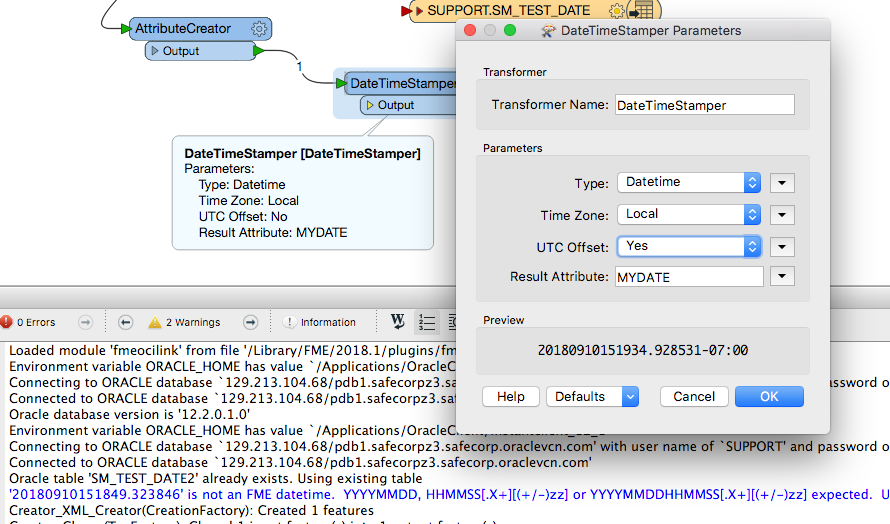Hello,
I’m getting an error that I don’t know how to handle.
Working with dates in Oracle writer, it seems that something wrong happens that convert in NULL the date provided. The date field (CREATEDTIME) is non nullable, so the workflow ends with the following error:
error was `ORA-01400: cannot insert NULL into ("CAD_OWNER"."MAPPIN"."CREATEDTIME")'
The field is of type “TIMESTAMP(0) WITH TIME ZONE”. So, using sqlExecutor, it accepts value like
'05-SEP-18 11:00:00.25 AM' and ends properly inserting the record.
I tried to do the same, placing an attribute with the same format in the Oracle writer without success. Also other dateFormatter seems not to obtain good results. I only need to insert a DateTimeNow().
Where I’m wrong?
Thanks!
Roberto















